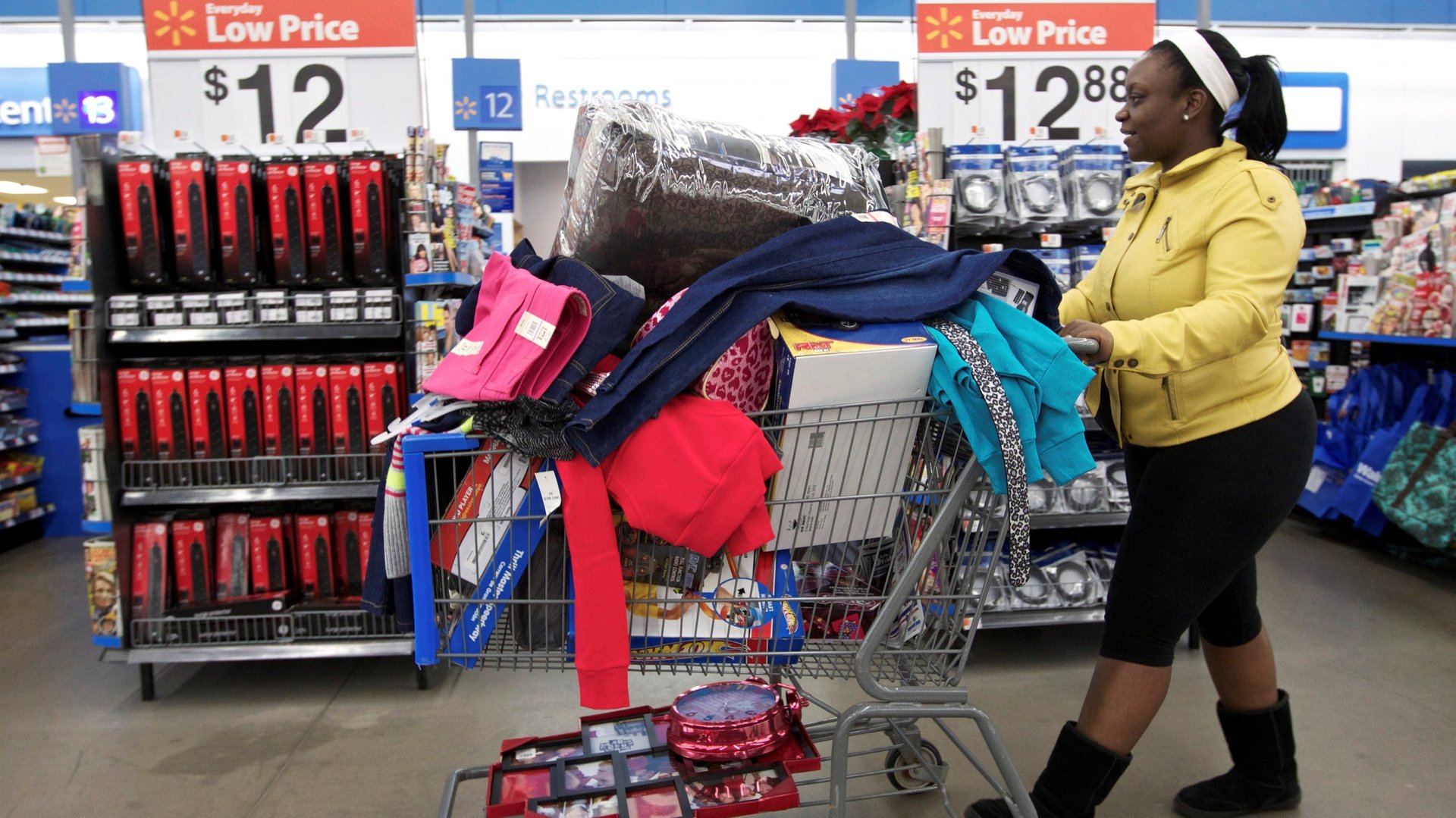US consumer spending in September suggests supply chain strains will persist
Americans picked up their spending in September, funneling more dollars into everything from sporting goods to clothes. Their more spendthrift mood spells continued strain for supply chains, which were struggling to fill orders even at lower levels of spending.


Americans picked up their spending in September, funneling more dollars into everything from sporting goods to clothes. Their more spendthrift mood spells continued strain for supply chains, which were struggling to fill orders even at lower levels of spending.
The US Census Bureau’s latest retail sales report, released Friday (Oct. 15), shows merchandise purchases rose 2% in September from the previous month, while spending on services like restaurant meals and drinking at bars grew more slowly, by only 0.3%.
Overall, retail sales went up 0.7%, beating forecasts of a 0.2% decline. Economists had expected the delta variant, which continued to fuel covid-19 cases in September, to slow down sales. But while delta dented spending in July, when sales fell by 1.8%, increases in September and August suggest the pandemic’s effects are fading. (August’s retail sales went up by 0.9% in August, a revision from the 0.7% originally reported.)
Part of September’s uptick in retail sales is driven by higher inflation, said Gregory Daco, chief US economist for economic forecasting firm Oxford Economics, but the largest surprise of the report was a 0.5% increase in spending on cars, which Daco said economists expected to drop following vehicle unit sales dropping sharply in September.
Americans’ spending habits are shifting
Usually economic recessions lead to consumers postponing purchases of durable goods in favor of services. The pandemic flipped that equation as people stayed at home. While the spread of delta did not push US consumers to back down on purchases, the September data show they are changing the mix of their spending patterns, said Daco. For example, they’ve had to hold back on purchases of certain goods like electronics and appliances, which are now harder to get and more expensive due to supply chain issues.
Many consumers also seem to be doing their holiday shopping early—purchasing more sporting goods, books, and general merchandise—which might explain why they’re still spending money despite their dimmer outlook on the economy.
With consumer demand still strong, shipping delays are unlikely to let up heading into Thanksgiving and Christmas.